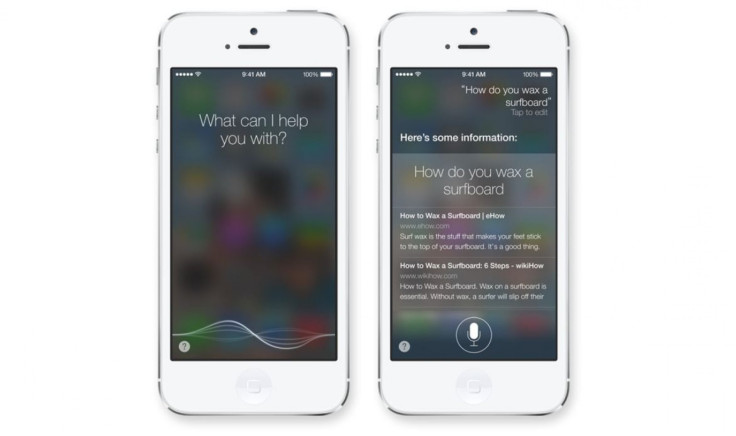Apple iPhone 5S Rumors: iOS 7 Takes Cue From Android, May Bring Local, Offline Voice Dictation

A clue to a new feature has been spotted inside both iOS 7 betas that could bring offline voice-input capability to the next-generation iPhone, dubbed the iPhone 5S, according to a new report. It added that the functionality, already included in the Android mobile operating system, could offer Apple Inc. (NASDAQ:AAPL) a significant competitive edge.
A Twitter user who goes by the name of Hamza Sood discovered a string of code within the iOS 7 betas, indicating that Apple is testing a local, offline version of the Dictation voice-input feature for iOS devices, 9to5Mac reported Friday.
When a user inputs any text using voice through Dictation, the current iOS version employs software to upload the speech to the cloud to get it converted into text, a method that requires an Internet connection and a cloud backend. In most cases, the process takes a long time to load, or gives an error message.
The new offline voice dictation, if becomes a full-fledged feature in iOS 7, will allow an iPhone, iPad or iPod touch to process and convert speech on the device itself, without requiring any Internet connectivity. The feature is expected to make emails, text messages, notes and Web searches using voice inputs much quicker than before.
“The functionality is currently not active in public-facing builds, but we are told that devices internal to Apple have the function up and running,” 9to5Mac said. “We are also told that while local dictation is an option in these seeds, the former, cloud-based dictation process is present for certain situations. Perhaps this will be an option in Settings or an option based on Internet conditions.”
Some have speculated that Apple may shift the technology to Siri from Dictation, allowing the virtual voice assistant to respond to certain queries at a quicker pace.
As 9to5Mac has reported, Apple has included offline voice dictation in its impending Macintosh OS X Mavericks software release. However, users will have to grab a 785-megabyte downloadable package to install the functionality on their Mac computers. Therefore, it is expected a future version of the iOS, supporting offline dictation functionality, may require users to download a similar package.
Given that both the iPhone 3GS and iPhone 4S featured new elements of voice technologies -- Voice Control and Siri, respectively -- the anticipated iPhone 5S is also likely to incorporate a similar feature as an exclusive add-on. The offline voice dictation fits into that slot quite well. In addition, local voice processing is power-intensive, and therefore could complement the next iPhone’s improved processor and battery.
Apple is expected to release the iPhone 5S sometime in September, with a number of new features including a fingerprint sensor, an improved camera, a faster processor, a superior battery and, of course, iOS 7.
© Copyright IBTimes 2024. All rights reserved.












